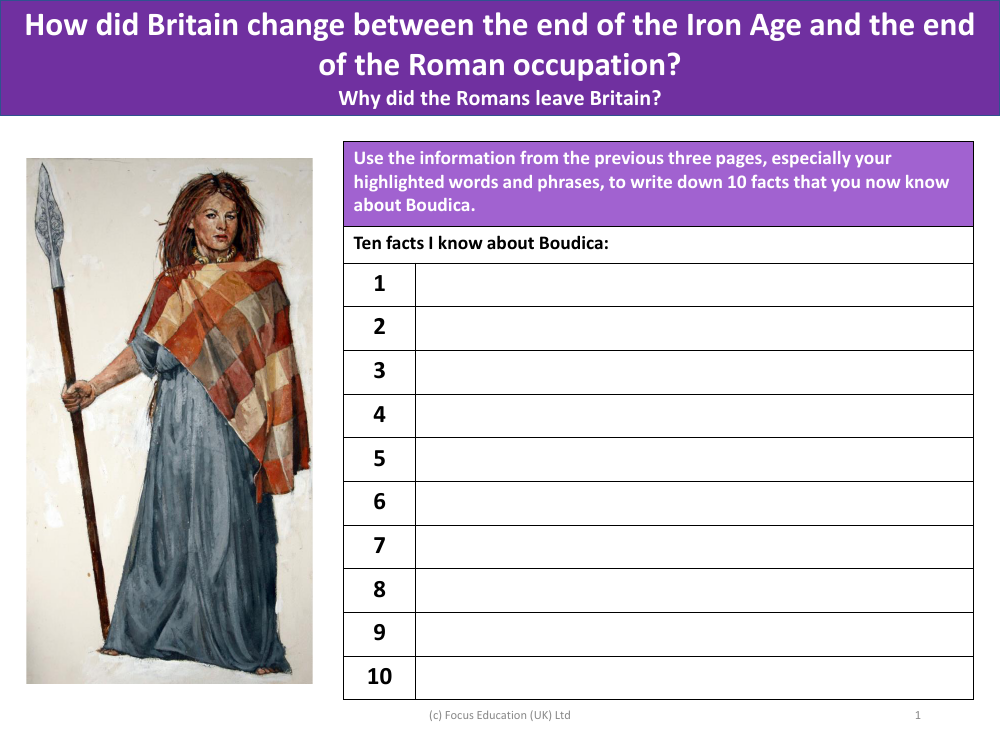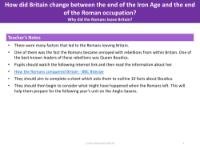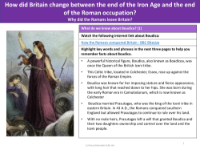10 facts I know about Boudica

History Resource Description
As the text provided does not include the previous three pages or any highlighted words and phrases, it is not possible to extract ten facts about Boudica directly from the source material mentioned. However, based on historical knowledge, here are ten general facts about Boudica:
- Boudica was a queen of the Iceni tribe who lived in what is now known as East Anglia, England.
- She led a major uprising against the occupying forces of the Roman Empire in around AD 60 or 61.
- Boudica was married to King Prasutagus, who was an ally of Rome before his death.
- After Prasutagus's death, the Roman Empire annexed his kingdom, and Boudica and her daughters were mistreated, sparking the rebellion.
- Under her leadership, the Iceni and other tribes destroyed the Roman city of Camulodunum (modern-day Colchester), which was a significant Roman settlement.
- Boudica's forces also attacked and burned Londinium (London) and Verulamium (St Albans), causing extensive destruction.
- Despite early successes, Boudica's rebellion was eventually quashed by the Roman governor Gaius Suetonius Paulinus.
- The exact site of the final battle is unknown, but it ended in a decisive defeat for Boudica's forces.
- There are varying accounts of Boudica's death, including speculation that she took poison to avoid capture by the Romans.
- Boudica has become an iconic figure in British history and is often celebrated as a symbol of the struggle for justice and independence.
Regarding the changes in Britain between the end of the Iron Age and the end of the Roman occupation, the country underwent significant transformation. The Romans introduced new towns, roads, and advanced engineering, as well as Roman law, language (Latin), and culture. They also brought new agricultural practices and trade links that connected Britain more closely to the continent.
The Romans began to leave Britain in the early 5th century as the Western Roman Empire started to collapse. They withdrew their troops to defend territories closer to Rome as they faced increasing pressure from barbarian invasions. This left Britain without the military support it had relied on, leading to the decline of Roman rule and the eventual emergence of Anglo-Saxon kingdoms.




